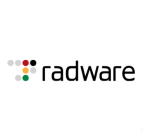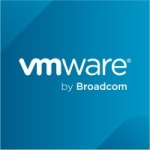We use NGINX as solution for load balancing our cluster production.
Currently, we don't have any plans to increase the usage because each license costs around $2000 - $2500.
We use open source nginx.
Their license fee has gone up, so that is one concern that we have. We are looking for alternative solutions which compare well and fit into our budget.
We are interested in an open-source version with the same set of features. We had to do a lot of custom coding around open source NGINX, which we were able to do.
Compared to other similar solutions on the market, I think it's over-priced. If they reduced the price by 50%, then I would definitely like to continue with them.
The scaling should be built into the software rather than configured from an outside source.
Regarding cluster-management, I should be able to provide configuration directly rather than bringing down the software and then updating it and taking it back down again.
Without going offline, if we can manage load balancing as a cluster — meaning I have to bring them down, update them, and then take it back. If that could be more dynamic, that would answer all of my requirements.
I have been using this solution for almost ten years.
NGINX is stable, but scalability-wise, there would be some downtime while managing a cluster of nginx.
There have been multiple occasions where they have taken their sweet time. We had the cheapest license that we could buy from them; because of that, they have a turnaround time of seven days to respond.
Previously, we used Apache and another solution, but I can't remember the name. It took roughly 30 minutes to scale up and down; that's one of the reasons why we switched to NGINX.
The initial setup can be complex. You really have to have a good understanding of their configurations. On a scale from one to five, I consider it a three.
I think installation only took a couple of minutes — no more than 10 minutes.
We implemented it ourselves.
It takes roughly 10 minutes if I have to change the cluster or upgrade the cluster, but in the same cluster, there's no downtime as such. If I want to add additional systems, it is quite easy.
Only when we want to downsize the load balancers, then we have a little bit of downtime — two to three minutes, max. We do it in the middle of the night.
I would recommend this solution. I think it works for a smaller cluster — it really depends on what your team is trying to achieve.
I think it's a really good product for startup projects of medium size clusters, but once your customer base starts hitting big numbers then managing clusters becomes challenging. If you go beyond the limit, then you'll start to see a negative impact.
On a scale from one to ten, I would give this solution a rating of Nine.


















